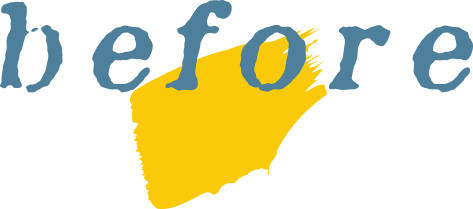We have all perceived, at least once in our life (and perhaps much more than one) a sense of competitiveness; in reality, if you pay attention to it, you will find that competitiveness affects us in almost all life situations, from social ones, in which we want to appear in a certain way and we suffer if someone else “surpasses” us in something, to working ones .
To some extent there is always a part of us that competes, both consciously and unconsciously, and would like to show the world that it has better qualities than others.
So, is competitiveness useful? Or can there be an obstacle?
First of all, it must be said that competitiveness is a healthy and natural attitude. Each animal competes with others of its own species (and not), for example in the field of courtship and mating. In fact, the female (when the females choose) will choose the most gifted male, the most beautiful or who will prove to be more capable. Competition is therefore a natural principle and we human beings are no exception: competing, and excelling over others, on the one hand means trying to ensure a better life and on the other, it represents a fundamental boost to self-improvement and growth.
It is this last principle that must act as an indicator for us to distinguish healthy, useful and desirable competitiveness from excessive competitiveness that can induce pressure that instead of pushing us limits us, making us feel inadequate.
Competitiveness must in fact follow a principle of equilibrium: an adequate dose will push us to improve, to seek new strategies, to try to excel in our field. An excess of competitiveness, on the other hand, can cause anxiety, stress (and therefore limit our performance) or even lead to a sense of inferiority that is highly harmful to the goals we want to achieve.
The awareness of this balance can help us to “calibrate” our competitiveness and to realize if it is useful or if it is hindering us. Let’s see how to do it in the best way.
Compete only with yourself
Healthy competition has to do first with confronting yourself, both positively and negatively, and trying every day to be better than the person we were yesterday. Bringing one’s attention out to others means moving the focus outside of what is in our control, when instead it would be more useful to focus on what is in our control, namely ourselves and our actions.
Consider your resources
No one is the same, so dealing with people who have different resources than ours is misleading. It is useless to get down if that colleague of ours knows how to speak in public better than us: maybe he is less good in some other area.
We therefore always start from our main resources, from our strengths, strengthening them, without focusing only on what we lack.
Be aware of the judgmental thoughts
For what has just been written, it can be deduced that judging thoughts are never helpful. It is therefore essential to pay attention to it, and deliberately decide (yes, decide!) To give it less weight, beyond the objective and obvious elements. With time and practice this is possible and within everyone’s reach. Just want it.
Altri articoli
Less stress and more energy thanks to Trust Management
Any corporate context is formed in its fundamental essence by the relationships that develop and define it. And every human relationship is based on the presence (or lack) of trust. This is why it is so important to know how to evaluate, support, improve and develop...
How to get the most out of synergies thanks to collective intelligence
Every group, as we know, forms within itself an entity that is greater than the sum of its parts. But how is it possible to exploit this added value without it becoming, as often happens in the company, a dispersive and inefficient movement? One of the simplest and...
Reduce accidents by changing the perception of the concept of safety
Several studies have shown that business accidents are due in 80% of cases to human errors. Starting from this data, it is obvious that to reduce injuries it is more appropriate and effective to start from the analysis of human behavior, to then understand how to...
How to turn others from enemies into allies
According to Alfred Adler, one of the fathers of psychology, almost all our problems derive from interpersonal relationships: if you think about it, all our emotions derive from something that, from our point of view, does not work in relationships with others. In the...
Enhance intuition in the company thanks to the Management Constellations
What do Barak Obama, Albert Einstein and Elon Musk have in common? It goes without saying that they are characters of great intelligence, but what really unites them is their great capacity for intuition. Why is intuition important in the company? Intuition is...
How to write great emails
We now manage them automatically, every day, constantly; they are part of our life, of our routine, they determine our way of working, our relationships, our communication. Yet we don't give them so much importance, sometimes we respond automatically and open them...
Courage in the company: the key to your success
"Having courage" in your business environment means much more than "throwing yourself" or "taking risks", having courage is a concept that has a profound value, it has to do with our identity and the meaning it has for we our life in terms of personal fulfillment. An...
Mindfulness as a resource to work better and with less effort
In recent years you have often heard about mindfulness and the benefits it brings, both personally and professionally, for those who practice it consistently. But exactly why can it be beneficial for our well-being in the workplace? What concrete benefits can it bring...
Developing well-being in the company through emotional intelligence
Everyone talks about IQ, but there is another type of intelligence, equally important because of its enormous impact on our well-being and our decisions: emotional intelligence.First theorized in 1990 by Daniel Goleman, IE can make a difference in the workplace,...
Stop to go faster: how smart breaks can boost productivity
Let's face it: in 2022 the idea that to get the most we must squeeze as much as possible for eight consecutive hours (or more) is no longer credible.Numerous studies confirm that an employee engaged for 8 consecutive hours will see his performance curve drop...











